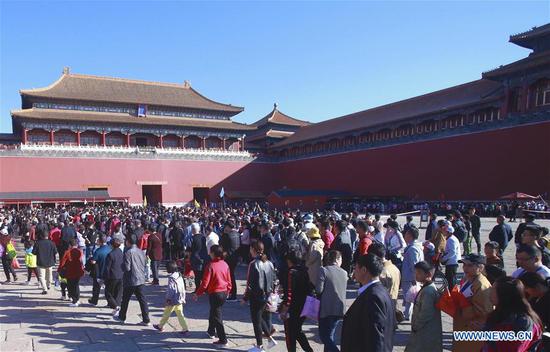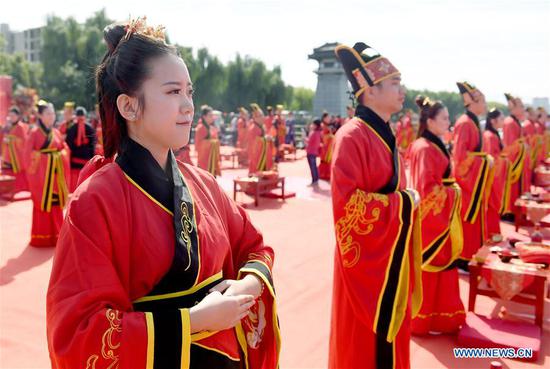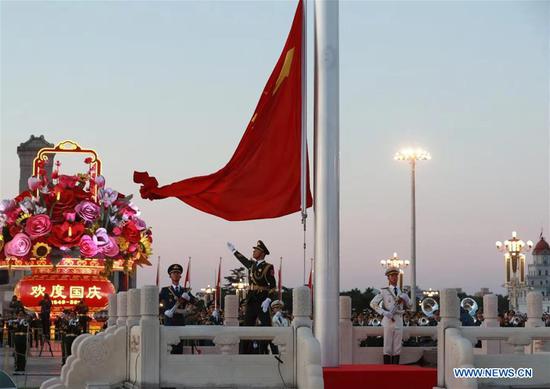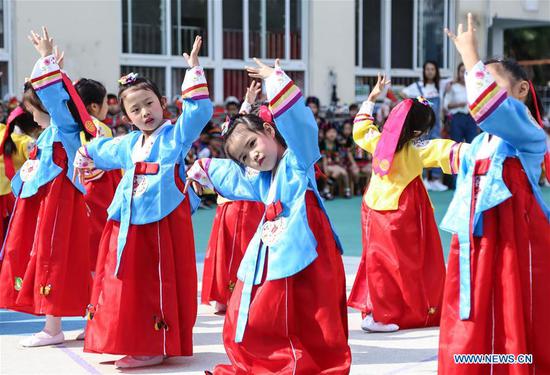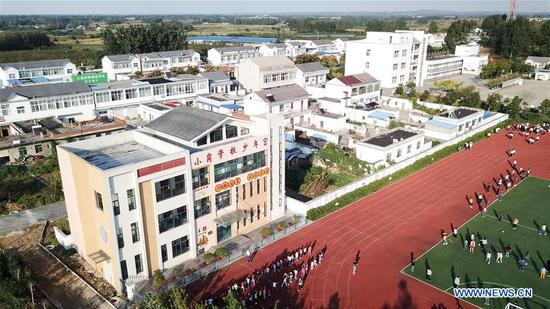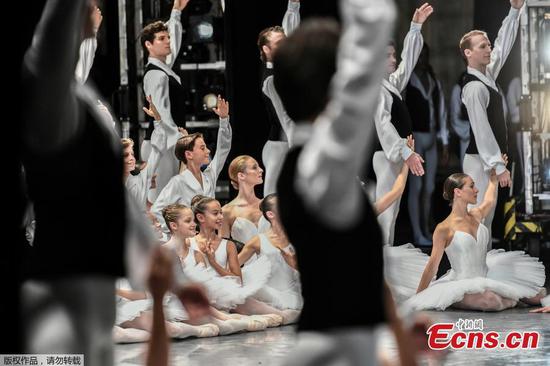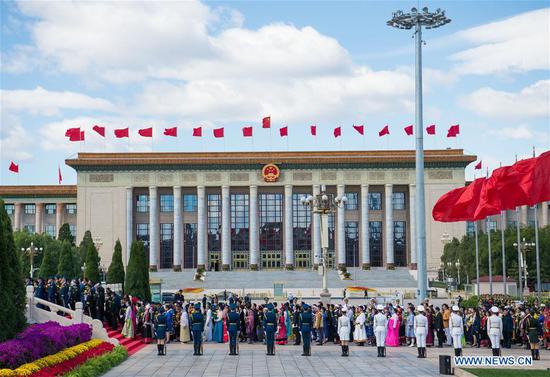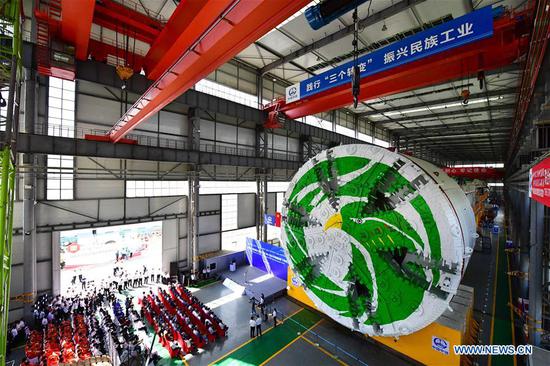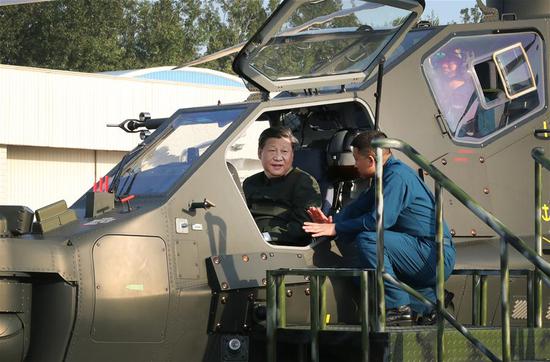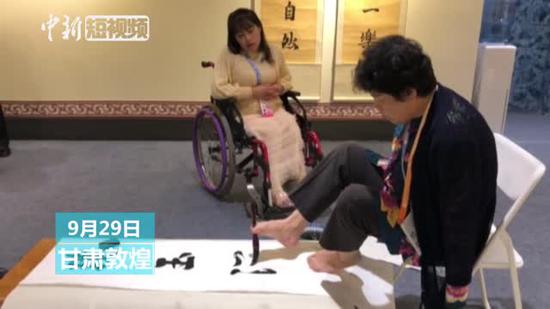Yu Jing, an office worker in Beijing, takes an expensive approach to fitness.
She gave up a 1,000-square-meter gym with an annual fee of 2,000 yuan (291 U.S. dollars) and paid 9,000 yuan for 36 one-hour courses in a fitness studio located in a three-bedroom apartment in an office building outside the city's third-ring road.
"It is not a cheap bargain, but I think the exercise will be more effective under the guidance of a private coach," said the 35-year-old woman.
The Aosheng Fitness Training Base, with an area of only 150 square meters, opened in March and has about 60 members, according to Jin Long, a 27-year-old retired wrestler and founder of the studio. The studio has seven coaches, all retired wrestlers from north China's Inner Mongolia Autonomous Region.
The studio is already profitable as each member pays about 10,000 yuan for their courses, said Jin, who is busy searching for an apartment for a second studio. Jin came to Beijing five years ago, working as a fitness coach.
"The traditional fitness clubs concentrate more on sales and focus less on customers' consumption experiences and services," Jin said. "Our studio focuses on customers and body-building results, which is the future direction of the industry."
As China's middle class population is on the rise, small but more expensive studios like Jin's are sprouting up across China.
When Tang Lin, founder of i Fitness Space, set up his first fitness studio in Beijing five years ago, there were roughly 20 such studios in Beijing. Now there are more than 1,500 such studios in the city on dianping.com, a leading Chinese online city-guide.
"Chinese people are not only putting more attention on health but also are more willing to pay for better consumption experiences," said Tang, adding that those born in the 1970s and 1980s were the major clients.
Chinese people will spend about 1 trillion yuan on sports consumption this year, said Ouyang Li, an official with the National Development and Reform Commission, at a press conference in August.
"The expansion of the high-end consumption population and upgrade of people's consumption demand contributes to the rapid development of the private fitness studios in China," said Yi Jiandong, a sports economy expert with Peking University's National School of Development.
Meanwhile, the coach training business is becoming more lucrative.
The number of trainees of Saipu Fitness Institute, the only listed and leading fitness-training organization in China, is expected to reach 40,000 this year, according to Zhao Siyu, assistant president of Saipu Investment Co. Ltd.
Saipu reaped 259 million yuan in sales revenues in the first half of this year, up 78 percent year-on-year, and its net profits increased by 81 percent to 72.38 million yuan during the same period, according to its semi-annual report, which attributed the growth to the rising number of trainees.
"Saipu has been expanding the scale of its five schools in Beijing and Shenzhen, and a new school in Shanghai is opening soon," said Zhao, adding that the company is also engaged in sports education and community fitness.
"The sports industry has entered an era of rapid growth as the per capita GDP of China now exceeds 8,500 dollars and people demand more sports consumption," said Jiang Xiaojuan, a researcher with the Chinese Academy of Social Sciences.
Social capital is also pouring into the sports sector. In July, the Internet fitness company Keep Inc. raised 127 million dollars in its D-round financing.
The Chinese government is also aiming high for the sports sector to boost its economy. A recent guideline released by the Communist Party of China Central Committee and the State Council called for creating new business models of sports consumption with great demand potential.
As the fitness industry flourishes, Yi Jiandong hopes there will be an improvement in its professionalism and sports-science level.
Shortage of talent is also a big headache, according to Tang Lin. The sports teachers, coaches and sports researchers whom China's sports institutions are nurturing do not meet the requirements of decent fitness coaches.
Tang suggests Chinese universities set up majors on fitness coaching that cover subjects including sports and fitness psychology.












